How to Be an Effective Introvert at Work
One-third to half of the U.S. population might be introverts, according to many studies.
Susan Cain’s introvert manifesto, “Quiet: The Power of Introverts in a World That Can’t Stop Talking,” made it more acceptable for introverted employees to embrace and champion their serious and reflective style in the workplace. Yet, being an introvert at work can still be challenging, especially if you work in an office full of colleagues who love to brainstorm and collaborate, and never miss an opportunity to socialize during lunch or at happy hour.
Being an introvert isn’t about whether you’re shy or outgoing, says Karen Wickre, author of “Taking the Work out of Networking: An Introvert’s Guide to Making Connections that Count.” It’s more about how you recharge after a long day and what gives you energy, says Wickre, a former Google executive, editorial director of Twitter and self-described introvert. “Introverts need quiet time to regroup and recharge, and then they can go out into a crowd again,” she said.
Not sure if you’re an introvert or an extrovert? Take this simple test and find out. The answer may surprise you. If it turns out you’re an introvert, here are 16 ways to excel as an introvert in the workplace.
Bring Your Superpowers to Work
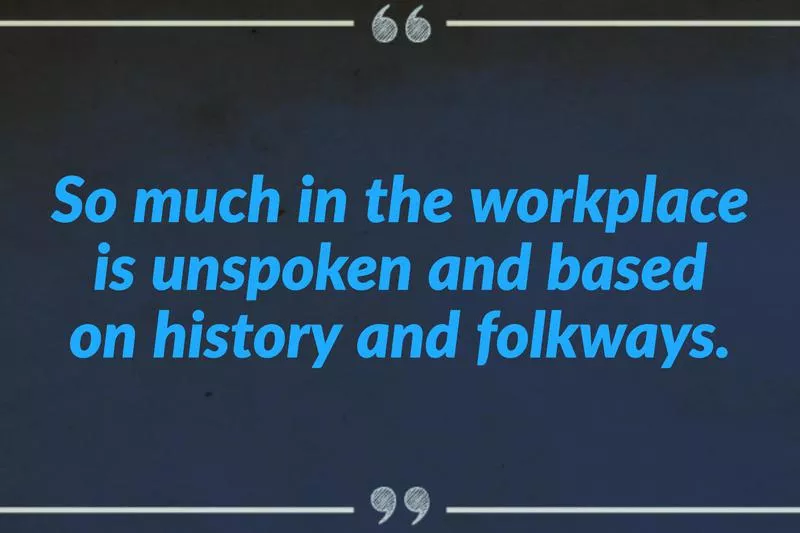
Introverts actually bring superpowers to the workplace — the ability to listen deeply, observe and be curious, Wickre says.
So much in the workplace is unspoken and based on history and folkways, she says. Understanding the dynamics of people is valuable for understanding the context around assignments and priorities.
Build Your Own Brain Trust
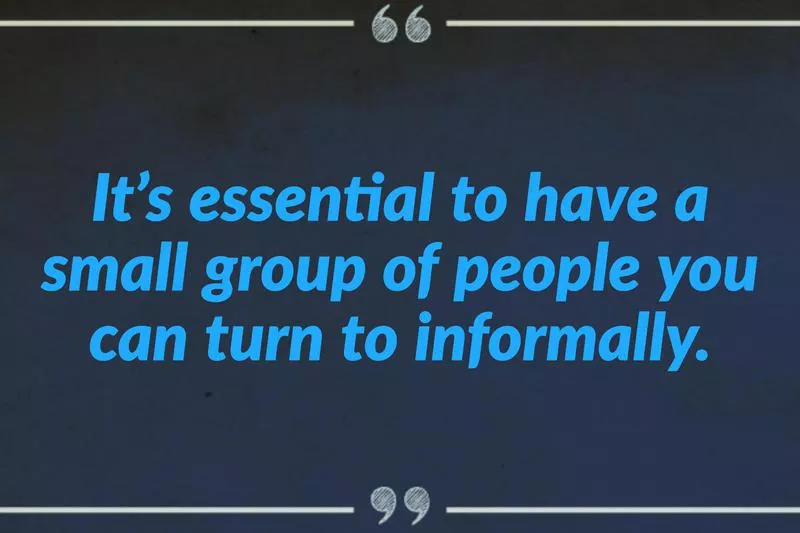
Offices that foster cross-team collaboration can be challenging for an introvert. Networking and speaking up at large team gatherings can be difficult for an introvert but every employee needs a network of contacts they can rely on.
One way to build your own network is to seek out people individually after a meeting or event, and invite them out for coffee or engage them in a hallway chat, Wickre says. It’s essential to have a small group of people you can turn to informally to help you understand things better at work.
Make Small Talk Painless

Recognize that small talk creates a momentary bond, puts people at ease in way that being silent doesn’t and makes you seem more approachable, Wickr says.
Keep in mind that small talk is never about anything deeply personal and, in general, small talk is over quickly. Everyone, even an introvert, can easily say something harmless about the weather, traffic or a favorite sports team.
Use Headphones to Avoid Unnecessary Chatter
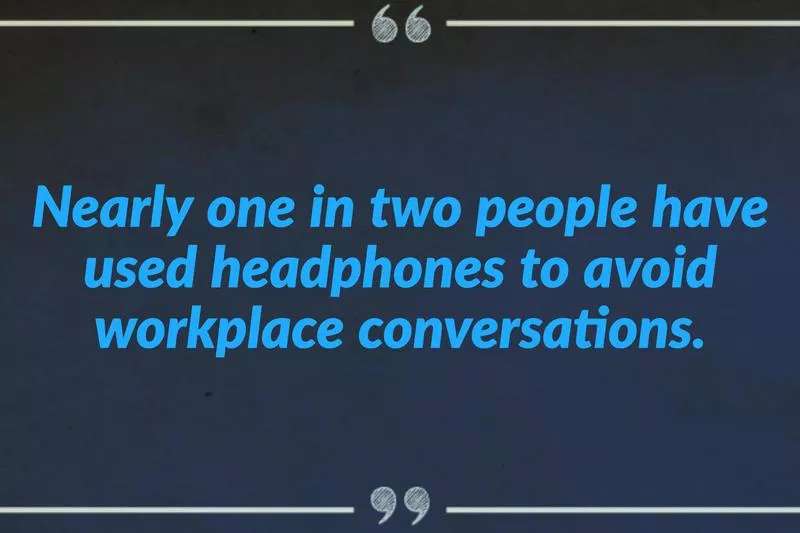
One of the best ways to avoid excessive office small talk is to use headphones during the day. You won’t be alone. Nearly one in two people have used headphones to avoid workplace conversations, according to study by CloudCover Music.
Make an Appearance at Office Parties

There are certain work events — particularly holiday parties and the summer outing — that shouldn’t be skipped, but that doesn’t mean you need to attend the event from start to finish.
Get there early, do a few circuits around the room with a drink in hand, and make sure you stop to talk with your coworkers, manager, the CEO and other stakeholders, Wickre says. After an hour of small talk and hellos, you can leave knowing you made an appearance.
Put Coworkers at Ease

While you don’t need to announce to everyone that you’re an introvert like it’s a special classification, you can give your coworkers subtle clues about your preferences. For instance, you could make a joke, at your own expense, about how you’re not going to be the first to participate in Karaoke at the company party.
Grin and Bear Happy Hour Every Now and Then
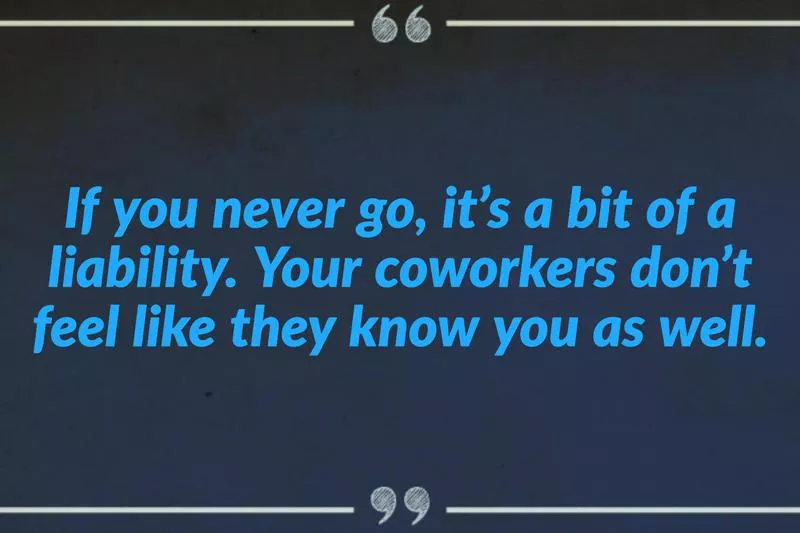
Much like the office party, going to an occasional happy hour is good for your career.
“If you never go, it’s a bit of a liability because your coworkers don’t feel like they know you as well,” Wickre said. Go early, enjoy one drink and then leave for an early dinner.
Ask for Advance Notice
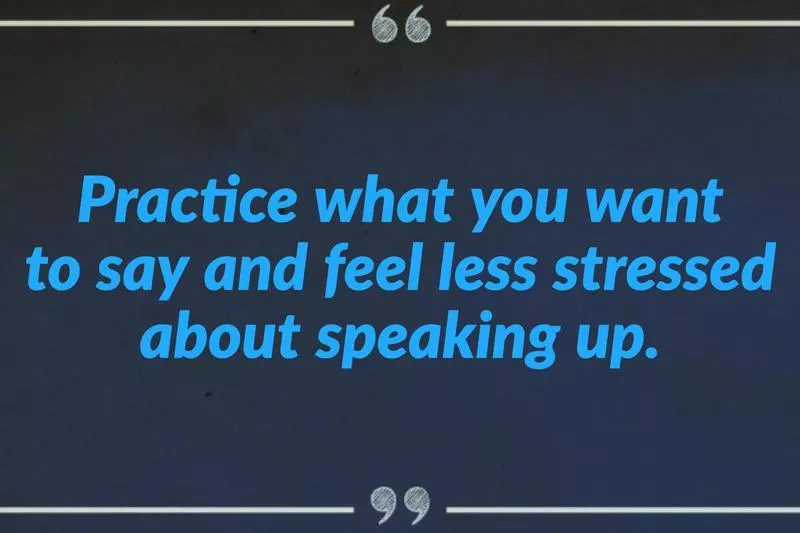
If you don’t like being put on the spot during meetings, ask your manager and colleagues to give you advanced notice before they ask you to speak up in large meetings or events.
Perhaps ask your boss before the meeting what input would be needed from you during the meeting. Then you can practice what you want to say, and feel more prepared and less stressed about speaking up.
Put Email to Work for You
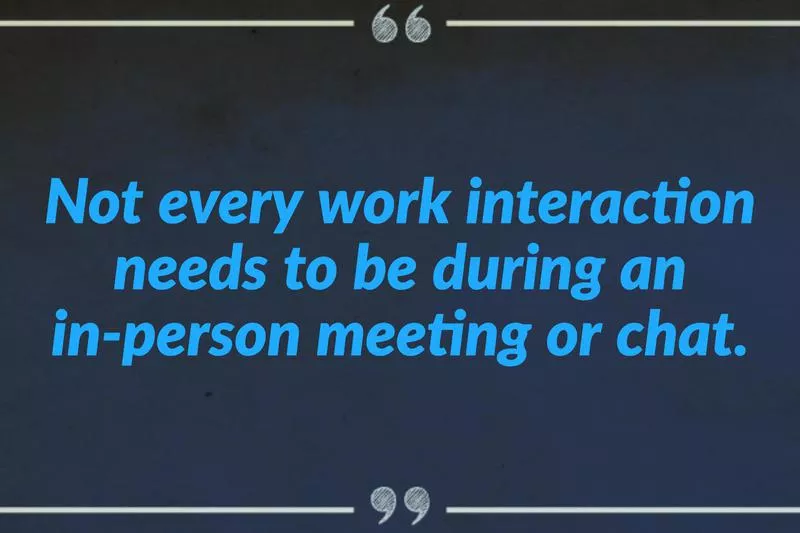
Not every work interaction needs to be during an in-person meeting or chat. You can easily communicate with your colleagues via email, if that is more comfortable for you, especially if you prefer to organize your thoughts and ideas in writing.
If you’re reluctant to speak during a meeting, you could also hand out a list of suggestions or a memo detailing your idea prior to the meeting.
Support Your Colleagues
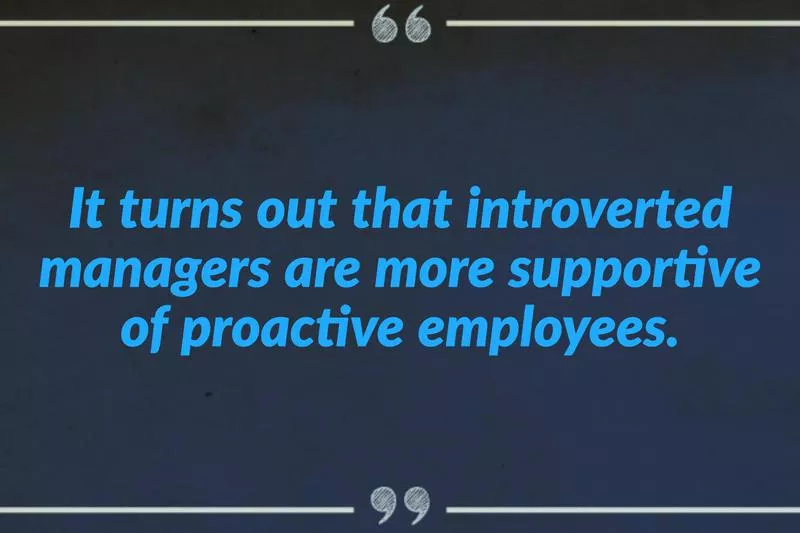
It turns out that introverted managers are more supportive of proactive employees and help them to succeed by listening carefully to suggestions and supporting their efforts, according to a study from the Wharton School at University of Pennsylvania.
Show Off Your Reliability
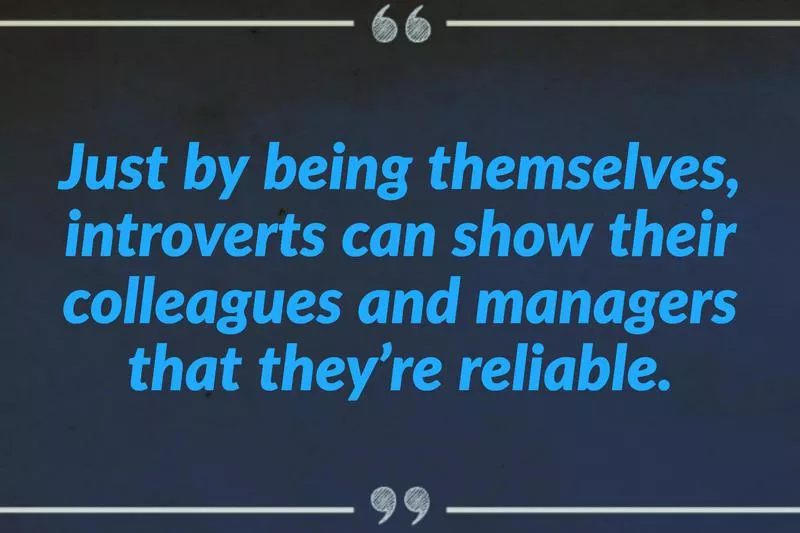
Many managers and colleagues prefer working with introverted employees because they listen carefully and can think beyond their own interests about what is best for the team. Just by being themselves, introverts can show their colleagues and managers that they’re reliable, empathic and make good decisions.
Channel Your Creativity
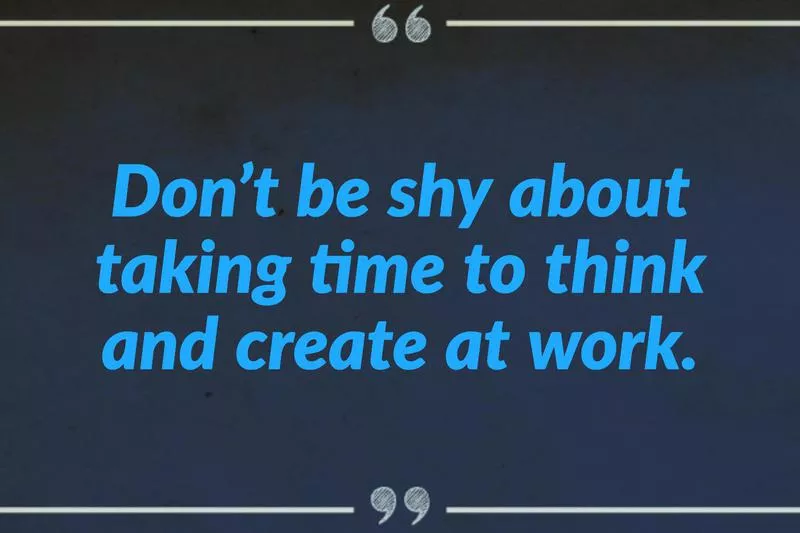
Use quiet time to tap into your creative side.
“Some of our best ideas, art and innovations — from the theory of evolution to Van Gogh’s Sunflowers to the personal computer — came from quiet and cerebral people who knew how to tune into their inner worlds and the treasures to be found there,” Cain wrote in her book “Quiet.”
Don’t be shy about taking time to think and create at work.
Partner With an Extrovert
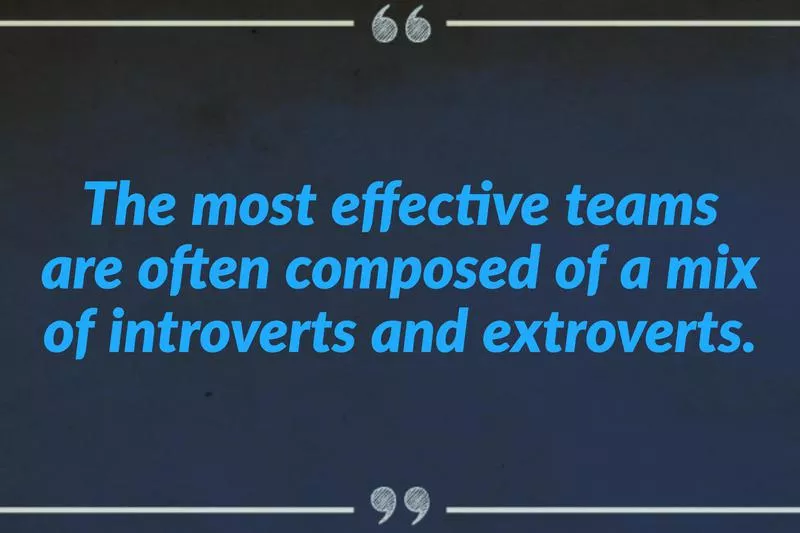
The most effective teams are often composed of a mix of introverts and extroverts.
“Seek out symbiotic introvert-extrovert relationships, in which leadership and other tasks are divided according to people’s natural strengths and temperaments,” Cain wrote in “Quiet.”
Take Time to Recharge at Work
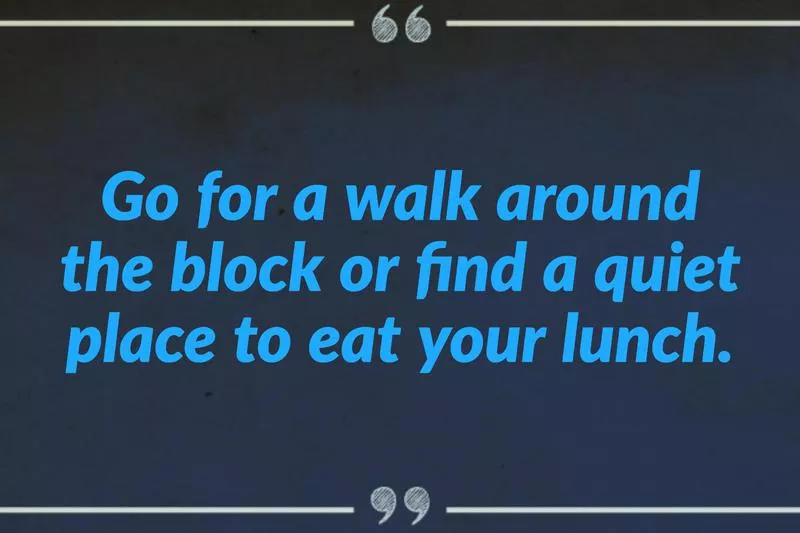
Take time for yourself during the workday, especially after a long meeting or an intense conversation with a chatty officemate. Go for a walk around the block or find a quiet place to eat your lunch rather than spending time in the lunchroom or walking to get lunch or coffee with your colleagues.
Understand Your Sweet Spot
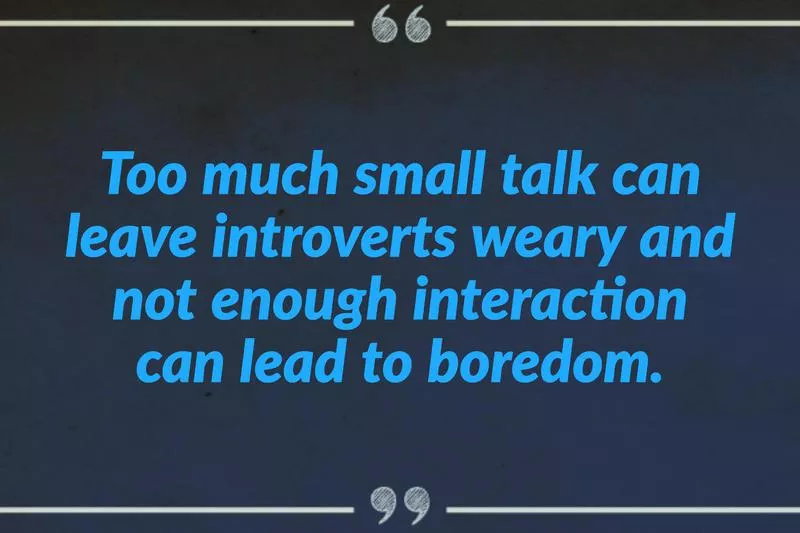
Recognize how much stimulation and interaction is enough but not too much, and try to replicate that environment at work.
Most introverts don’t need to be alone all the time but too much small talk can leave them weary and not enough interaction can lead to boredom. Knowing your limits can help you interact better with colleagues throughout the workday.
Recognize You’ll Never Be an Extrovert
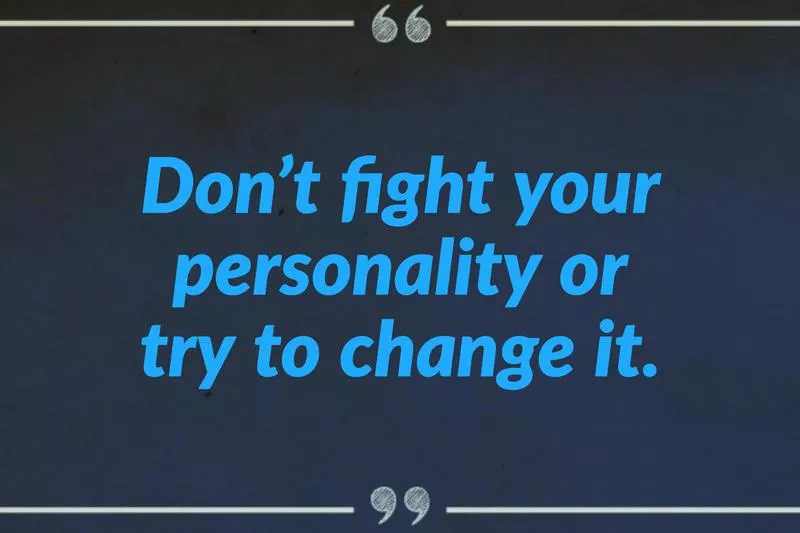
Don’t fight your personality or try to change it. As Cain wrote in “Quiet,” “Bill Gates is never going to be Bill Clinton, no matter how he polishes his social skills, and Bill Clinton can never be Bill Gates, no matter how much time he spends alone with a computer.”